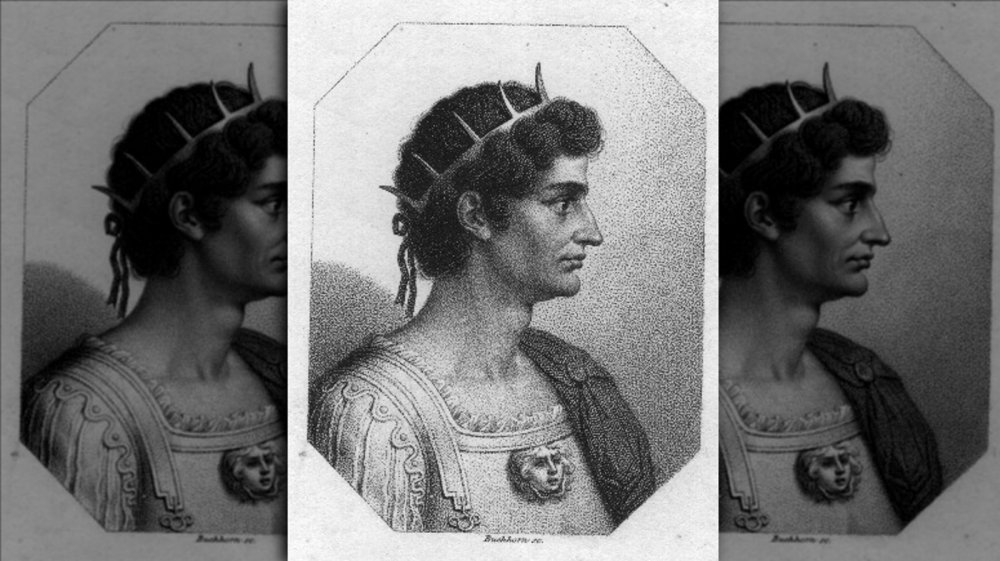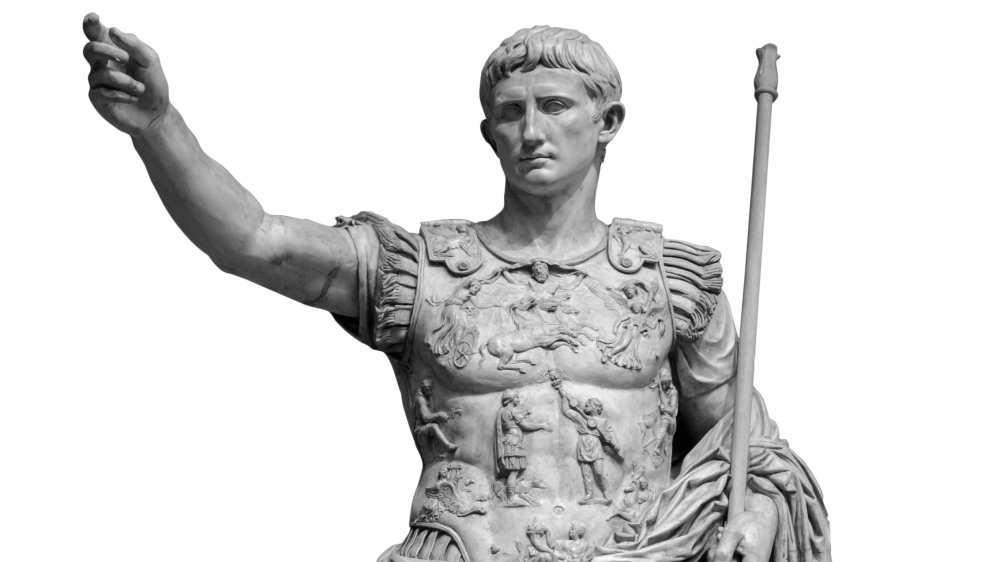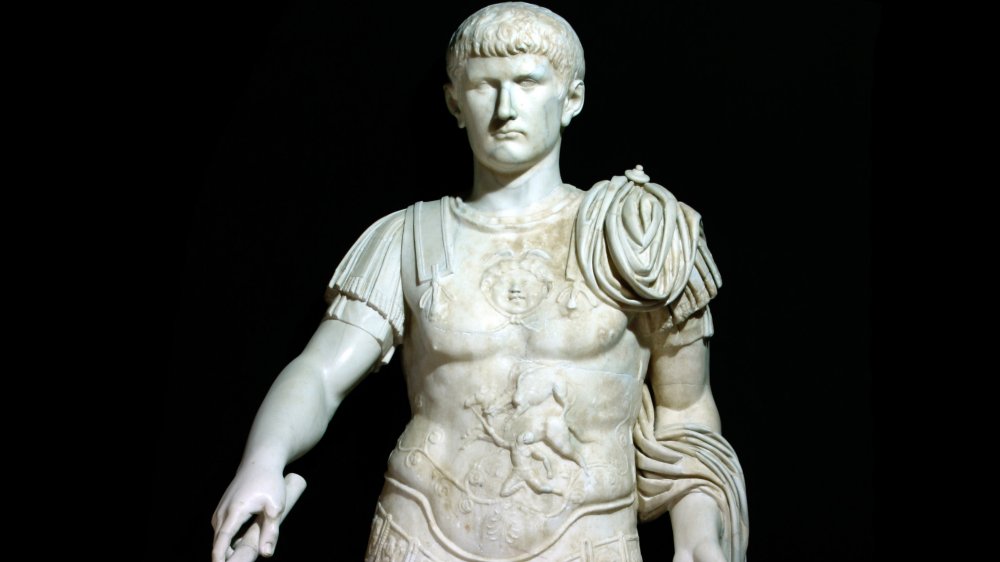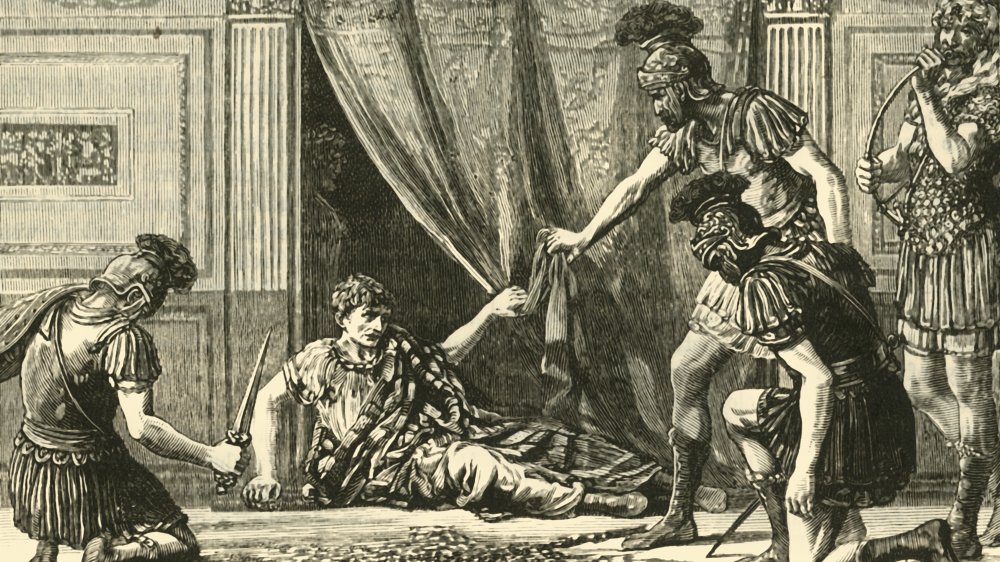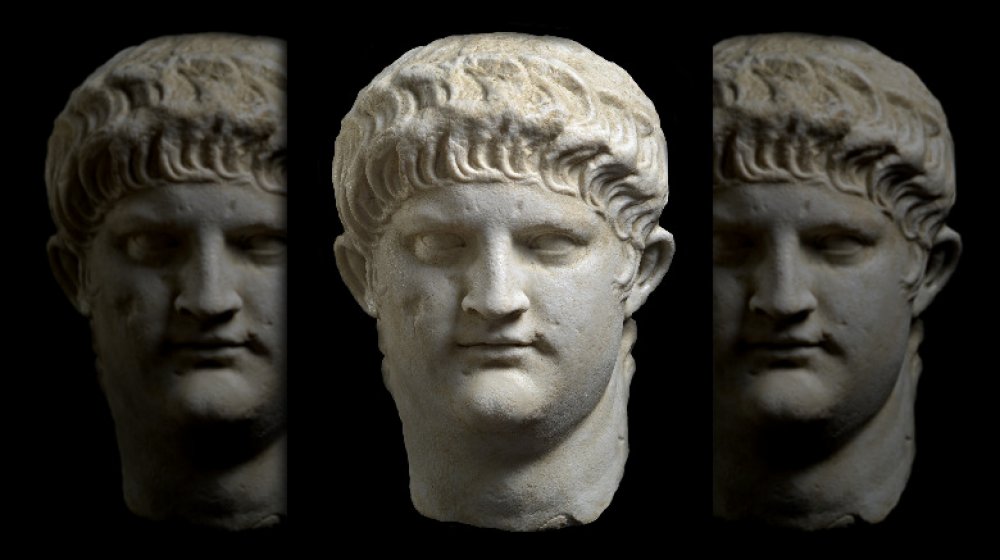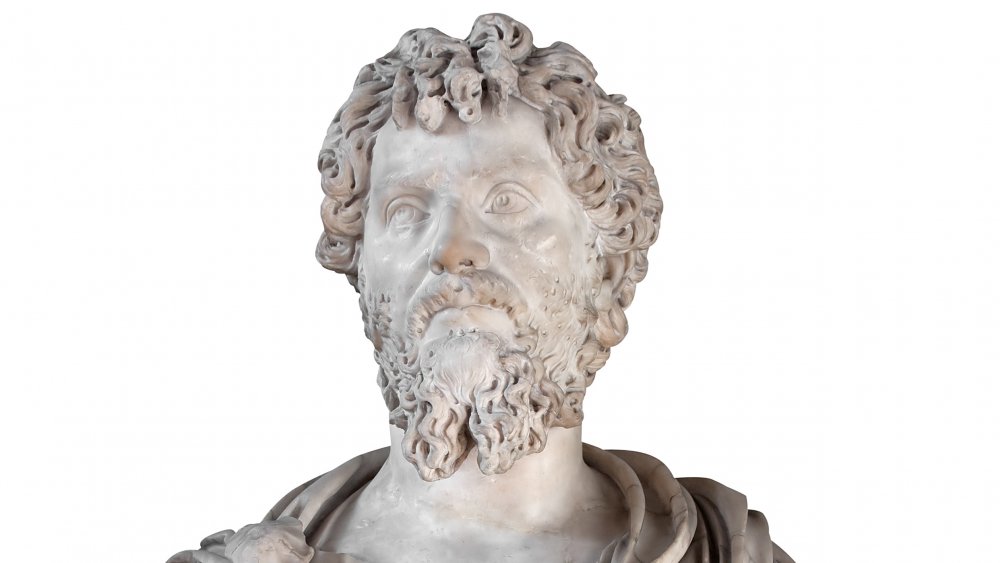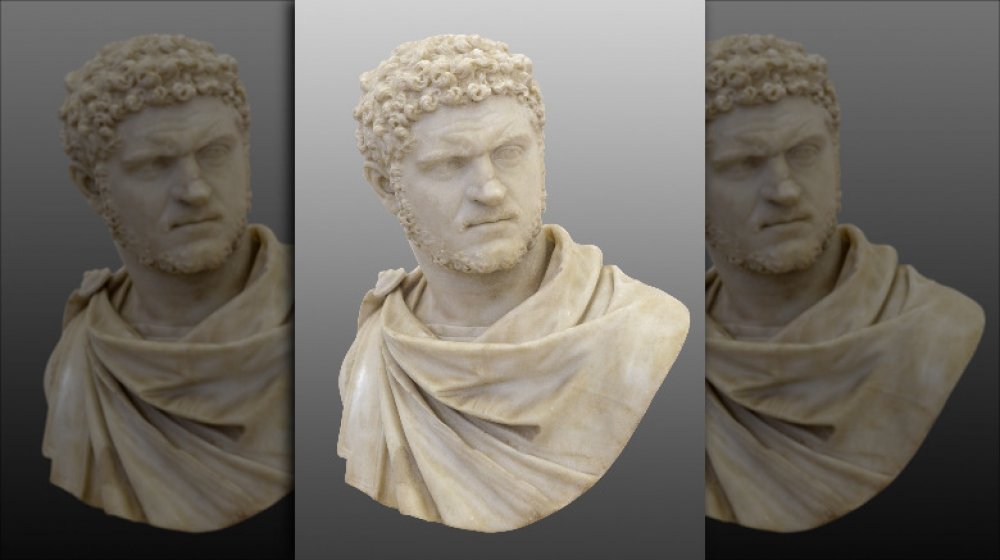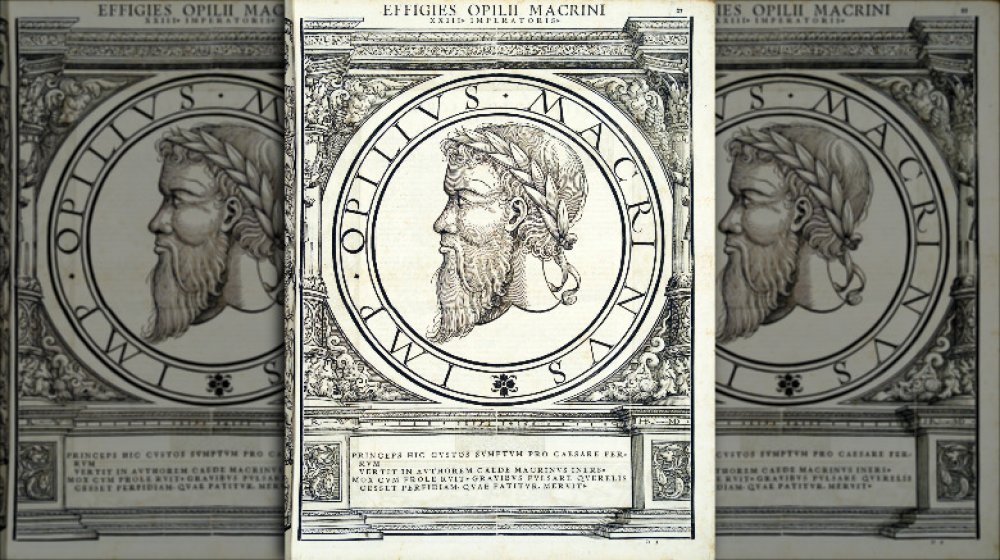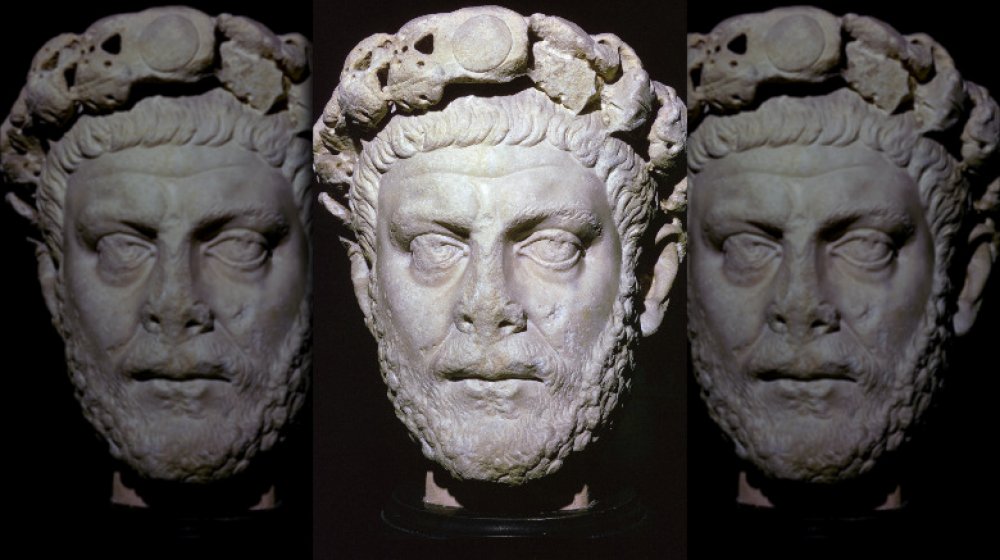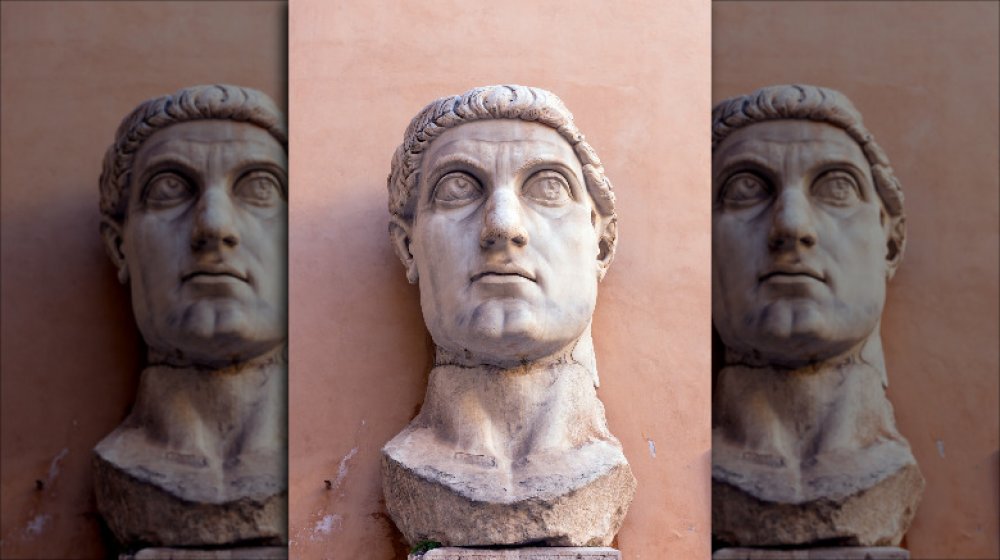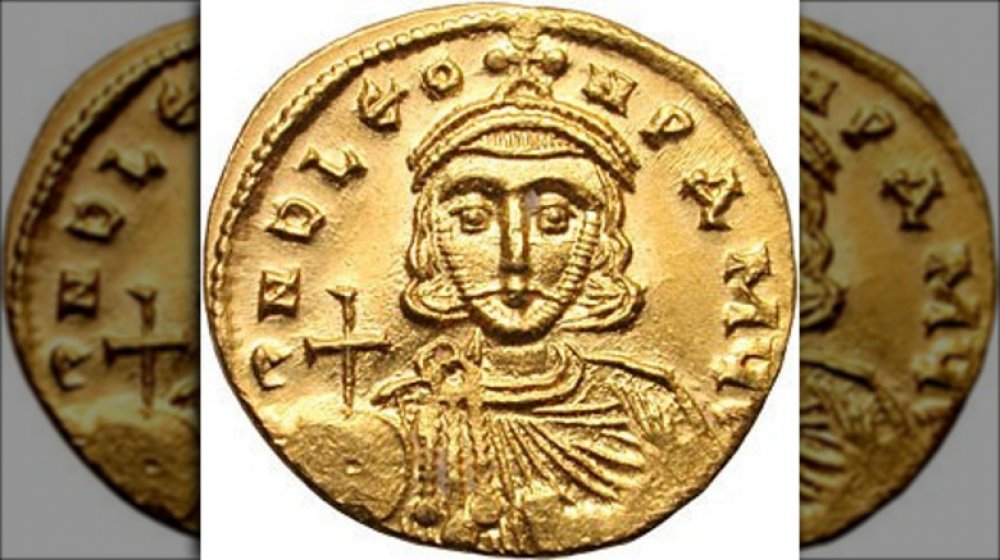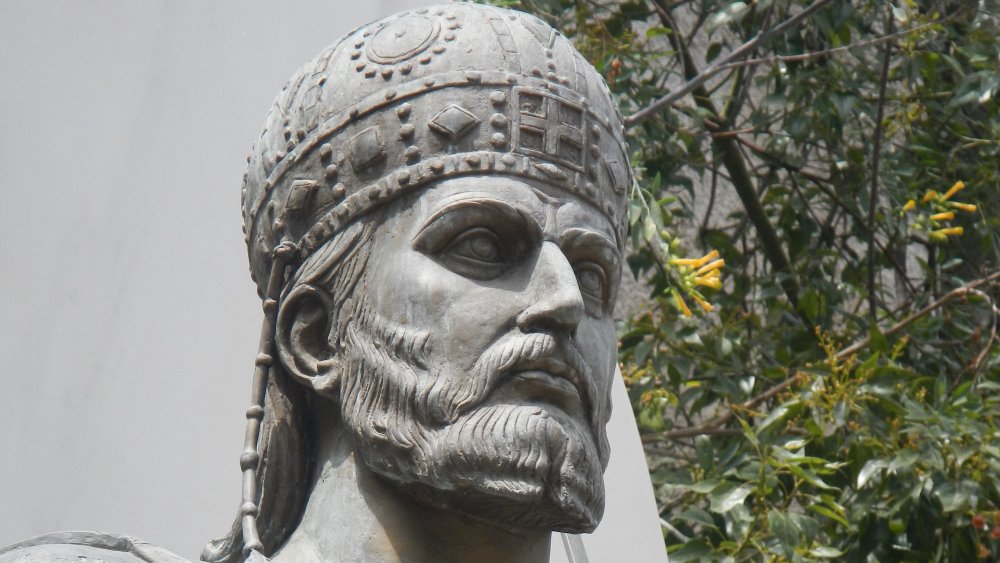The Most Devious Roman Emperors In History
Being Roman emperor was one of the most demanding and dangerous jobs in history. Sure, the compensation was pretty good—having the entire Roman Empire at your disposal was pretty lucrative—but it was also really, really dangerous. Very few Emperors died peacefully in their sleep, if you catch our drift.
That didn't dissuade people from competing for the throne, however. Since the imperial succession wasn't really hereditary, anyone with the right combination of influence, military power, and money could potentially be emperor (and one guy, Didius Julianus, literally just bought the throne from the Praetorian Guard). That means that some of the most ambitious people in history schemed to gain the imperial purple.
Not all of them succeeded, because ambition, money, and power weren't the only requirements for the job—you had to be extremely devious as well. Only those who could play politics and who were willing to do anything and betray anyone could become the most powerful individual in the ancient world. But once in power, even the most devious Roman emperors in history found out that winning the throne was only half the battle. The hard part was staying alive long enough to enjoy it.
Augustus beat the world
Rome's first emperor by modern reckoning was also one of its most devious. Born Gaius Octavius (and often called Octavian), as the Encyclopedia Britannica notes Julius Caesar was his great-uncle on his mother's side, and Caesar pushed Octavian's career throughout his life. When Caesar was assassinated, his will formally adopted Octavian as his son and heir, and he became Gaius Julius Caesar Octavianus.
Caesar's death sparked a civil war. Octavian was just 18-years-old, but he decided to claim his inheritance as Caesar's heir, pitting him against Caesar's right-hand man, Mark Antony. Octavian now had Caesar's immense wealth, and his adoption made him popular with Caesar's old troops. More importantly, as History Extra reports, the Roman Senate viewed Octavian as no threat, so they supported him, assuming they could manipulate him.
As it turned out, Octavian was manipulating everybody. He formed a triumvirate with Antony and a general named Lepidus—and bided his time. When Antony gave him an excuse by marrying the Egyptian queen Cleopatra, Octavian pounced, defeating his enemies and assuming all power in Rome. Octavian knew the Roman people would reject a king, so he insisted the only honor he would accept was "princeps," or "first citizen." He made a big show of returning authority to the Senate, then slowly claimed power behind the scenes. He was emperor before anyone even had a word for the office, and single-handedly reshaped Rome into his personal empire.
Caligula courted public opinion
Caligula was the third emperor of Rome, and he was a disaster, remembered today mainly for his insanity—he talked to the moon, declared war on the ocean, and wanted to make his horse a consul. Except, as History points out, most of that is probably not true. While he was definitely crazy and a terrible emperor, Roman historians had a bad habit of exaggerating things or inventing stuff completely in order to make reviled figures like Caligula look worse. The tragedy is, he started off as one of the most devious Roman emperors before suddenly veering into crazy.
First of all, he survived a political purge that killed most of his family, then ingratiated himself with the aging emperor Tiberius, who named him and his cousin Gemellus co-heirs. When Tiberius died, Caligula forged an alliance with Naevius Sutorius Macro, the leader of the Praetorian Guard, and pushed Gemellus aside. Then, a year later, he had them both killed.
For the first few months of his reign, Caligula cunningly courted public opinion. He spent lavishly on public works, he was respectful of traditions, and he announced a general amnesty for everyone who'd fled Tiberius' paranoid purges. But as one historian notes, Caligula probably suffered from temporal lobe epilepsy—a disease that likely pushed him into mental instability. The rest of his reign was chaotic, violent, and so deeply unpopular he was the first emperor to be assassinated for the good of the empire.
Claudius pretended to be weak
When Tiberius Claudius Drusus was born in 10 B.C., no one thought he might someday be Emperor of Rome. Although he was related to the first two emperors, he was also a weak and sickly boy. He stuttered, had tremors, and his nose ran constantly. According to History, theories on what exactly afflicted Claudius range from cerebral palsy to Tourette's syndrome. Whatever the truth was, his own family found him embarrassing.
When his nephew Caligula was assassinated, there was chaos in Rome. The Praetorian Guard were in a bit of a bind; since they'd done the assassinating, they worried that whoever claimed the throne would take revenge on them, so when they found old Claudius—already 51-years-old and widely considered a fool—hiding in the palace, they proclaimed him emperor, assuming he'd be a friendly and easy-to-control figurehead.
Claudius promptly proved how devious he actually was. First, he paid off the Praetorian Guard with a huge amount of money, knowing full well he owed his position—and his safety—to them. He skillfully avoided appearing before the Senate until he had consolidated his position. His ailments suddenly became much less pronounced. And then, as the Encyclopedia Britannica explains, he went on to be one of Rome's better emperors. In fact, it's widely believed that Claudius leaned in to his reputation as a fool and played up his symptoms in order to survive, and his little act paid off handsomely.
Nero attempted the biggest real estate scam in history
Nero Claudius Caesar Augustus Germanicus was the great-grandson of Rome's first emperor, Augustus. Under Emperor Caligula he and his mother Agrippina were exiled, but after Caligula's assassination and the ascension of his uncle, Claudius, to the throne they returned to Rome. Agrippina married Claudius, Claudius adopted Nero, and not long after Claudius died under mysterious circumstances (funny how that happens).
As the Encyclopedia Britannica notes, Nero was just 16-years-old when he was proclaimed emperor, and he ruled for 14 years. He quickly gained a reputation for outlandish appetites and huge ambitions, but what most people remember about Nero is that he's the emperor who fiddled while Rome burned.
Rome did indeed burn—as The Washington Post notes, 10 of Rome's 14 districts were totally destroyed in the fire—but there was no fiddling. Nero's response to the disaster was suspiciously nonchalant, however, possibly because he'd set the fire deliberately in order to build an enormous palace for himself. As PBS reports, Nero's desire to tear down most of the city and build his "Neropolis" was no secret—but the Senate wouldn't approve the plans. Many historians believe that Nero deviously destroyed his own capital in order to get what he wanted.
Septimius Severus outplayed every rival
The late 1st century wasn't a great time for Rome. People had figured out that there was a formula for seizing power in the empire—have a lot of money and a lot of troops. Emperor Commodus was assassinated at the very end of the year 192, sending the empire spiraling into chaos. The next year became known as The Year of the Five Emperors because ... there were five emperors that year.
Pertinax was acclaimed emperor but forgot who got him there and refused to pay the Praetorian Guard a huge bribe, so they killed him too. The Guard then auctioned the throne to the highest bidder, won by Didius Julianus, who made it nine weeks before being killed in turn.
Through it all, as the Encyclopedia Britannica records, Septimius Severus kept his head down. As a former Consul and current governor of Upper Pannonia (located in modern Austria and Hungary)—not to mention having one of the biggest armies behind him—he was perfectly positioned to claim power. But he waited until the right moment. First, he made a deal with his chief rival, Clodius Albinus, which freed him to march on Rome. Once installed as emperor, Severus replaced the Praetorian Guard with his own bodyguard. Then, according to The Collector, he quickly betrayed Albinus and marched his armies against him. When the dust settled, Severus had established a new dynasty and reshaped Rome into a military monarchy.
Caracalla bribed the whole world
Septimius' son, Caracalla, is remembered as a terrible emperor who contributed significantly to the decline of the empire. His actions are considered to have contributed directly to what historians flatly call The Crisis of the Third Century. Even the Encyclopedia Britannica casts significant shade on him, calling him "a bloodthirsty tyrant."
Named co-heir with his younger brother, Geta, Caracalla became the senior emperor when their father died in 211. As one historian writes, the brothers had been rivals their entire lives, and Caracalla showed his devious side when he lured Geta to their mother's house and had him murdered. Caracalla then raced to the Praetorian Guard and claimed he'd been attacked—and killed Geta in self-defense.
Caracalla was a bad administrator, and he sought to gain popularity by throwing lavish entertainments for the citizens. These were expensive, however—as was the army, which he needed on his side. In 212, Caracalla made history by decreeing all free people inside the empire's borders would be citizens of Rome. This was monumental, as Roman citizenship had a lot of perks in the ancient world and had been used as a reward for centuries. But as one biography explains, Caracalla was being calculating: Not only did custom dictate that all new citizens adopt the name of their sponsor—meaning that millions of new citizens now added "Antonius" to their names—but this act of seeming benevolence increased the tax revenue significantly.
Macrinus used inside info to claim the throne
In the early 3rd century, the Praetorian Guard—essentially the emperor's bodyguard and private security force—had become incredibly powerful. Emperors were frequently chosen by the Guard—and just as frequently assassinated by the Guard.
Caracalla was a cruel and unpredictable emperor, and was paranoid. He often executed people simply because he suspected them of plotting against him. A man named Macrinus was a prefect of the Praetorian guard under Caracalla, and gained the trust of the emperor. Macrinus was a talented man, but he was not of Senatorial rank, and so under normal circumstances would have no hope of becoming emperor. However, according to History Extra, when Macrinus accompanied Caracalla to battle in what is modern-day Iran, he was alarmed when a prophecy began to circulate that he would depose Caracalla and become emperor—he knew Caracalla had executed people for less. As the Encyclopedia Britannica reports, Macrinus thought quickly, recruiting an army officer to assassinate Caracalla before the emperor could order his execution.
Macrinus was acclaimed emperor—the first Praetorian to achieve the rank. He tried to be a good emperor, actually, but he made the classic mistake of trying to reduce payments to the army. A little over a year into his reign, he was deposed, captured, and executed.
Diocletian plotted to save the empire
If Augustus created the Roman Empire, Diocletian saved it—for a while. Crafty and cunning, Diocletian rose up from an obscure and low-ranking background to become a military leader during the period of Roman history called The Crisis of the Third Century. This period was marked by chaos, as emperors were assassinated and the army promoted replacements regularly.
When Diocletian was proclaimed emperor in 284, he moved like a man with a plan. First, according to the Encyclopedia Britannica, he promptly accused the father-in-law of the previous co-emperor—who had, of course, been murdered—of committing the crime, and had the man executed to stop rumors it had actually be Diocletian's doing. Then, after fighting off several rivals, Diocletian was sole emperor—but he was smart enough to realize the empire was simply too large for one man to run. As Money Museum writes, Diocletian divided the empire into East and West and made a trusted colleague named Maximinianus his co-emperor. Then he elevated two more men to a new rank called Caesar.
But if you need more proof of Diocletian's devious nature, consider this: As one historian notes, Diocletian is the only Roman emperor to simply retire. In 305, he gave up the purple—and forced his colleague Maximian to retire as well. Diocletian died peacefully in his bed a few years later—a remarkable testament to his ability, considering that 62 percent of Roman emperors died violently.
Constantine the Great's performative faith
Constantine I, known as the Great, was the first Roman Emperor to convert to Christianity. As the Encyclopedia Britannica explains, he claimed he saw a vision on the eve of a battle with his rival Maxentius that instructed him to paint a Christian symbol on his troops' shields. After winning the battle and going on to be sole emperor, he publicly ascribed his success to his conversion.
Many historians think Constantine was being a bit craftier than the legend implies. After centuries of violent suppression, Christianity was rising in popularity in Rome. As one biography explains, Constantine used the trappings of Christianity to imbue his court with a religious and mysterious aura, and used the growing popularity of the religion in service of stabilizing the empire and his control of it.
Constantine was actually very slow and careful to push out the old pagan religions, which were still very popular, especially among the troops. He only gradually removed pagan symbols from official documents, and closed down temples in stages. He was cunning about remaking the empire in a Christian image that saw him as the most important member of the church—although an unofficial member, since he delayed baptism until he was on his deathbed, possibly in an example of the ultimate hedging of bets.
Leo III double-crossed everyone
The later Byzantine emperors are generally less famous than their earlier counterparts. Although the Byzantine Empire is considered a successor state to the classic Roman Empire, the Byzantines considered themselves Roman. And there's a reason we use the term "Byzantine" to describe something especially complex—they were a devious bunch.
According to Rearview Mirror, Leo III worked hard to become emperor in 717. He wasn't part of the ruling class, he was a soldier, but he double-crossed and schemed his way into a leadership position. His double dealing wasn't restricted to his career—the empire was under tremendous pressure from invading Arab forces at the time. As the Encyclopedia Britannica writes, Leo made a deal with Arab leaders, agreeing to be their vassal if they helped him gain the throne. With their support, he marched on Constantinople. Then, when Emperor Theodosius III didn't seem inclined to die on his own or step aside, Leo cooked up a plot to kidnap Theodosius' son to force him out. And it worked.
Leo III also gets credit for saving the empire from the Arabs. After defending the city from overwhelming odds, he proved to be such a clever negotiator he was able to reorganize the empire, strengthening it and ensuring its survival for centuries to come.
Alexios V Doukas used the mob to take the throne
In the 13th century, the Byzantine Empire was ailing, but was seen as the most important Christian empire standing against Muslim forces. As Encyclopedia Britannica explains, Byzantine emperor Isaac II had been deposed some years earlier, so his son encouraged the Pope to declare a Fourth Crusade in order to restore his family to power. It worked, but it also meant that Isaac and Alexios were bound to the Crusaders, and the people of Constantinople came to despise these foreign invaders. The Crusaders believed they were owed by Isaac for their help, and when he couldn't pay they simply took what they could from the city, setting fires and looting.
Enter Alexios V Doukas, nick-named Murtzuphlus. Smelling an opportunity, Doukas harnessed the anger of the crowd in order to inspire a full-fledged revolt against Isaac and his son, leading a mob against the palace. As The Fourth Crusade records, the Emperors barricaded themselves inside their chambers. Doukas put his devious mind to work. With the help of someone with access to the imperial treasury, he bribed the emperors' bodyguards, the Varangian Guard, and had the co-emperors arrested and eventually killed, declaring himself the new emperor.
That's where Doukas' luck ran out. He discovered the empire was broke, so he decided their debt to the Crusaders was illegitimate. They laid siege to the city, and four months later Doukas—and the Byzantine Empire—fell.
Constantine XI schemed to save the empire
Constantine was the last Byzantine Emperor—the man who literally watched Constantinople fall to the Ottoman Empire in 1453, so naming him one of the most devious Roman Emperors might seem a stretch. But his failure was almost guaranteed by the time he ascended to the throne.
As Rearview Mirror records, Constantine was forced to stand by and watch as his incompetent brother, John VIII, ruined what was left of the declining empire. The Encyclopedia Britannica notes John had tried to enlist the help of the Western powers by going to Italy and joining the Eastern Orthodox Church with the Catholic Church under the leadership of the Pope—but his people were enraged by this, and it produced no significant help. Broken, John died shortly afterward, and Constantine ascended to the throne.
He tried. With no money, a small, sloppy army, and no allies, Constantine held on for five years and proved to be very tricky. As The Immortal Emperor notes, he tried every possible diplomatic trick to keep his empire together, but with little success. But the fact that he kept things going as long as he did is a testament to his cleverness. And the fact that he was last seen leading a suicide charge against Ottoman forces in Constantinople is a testament to his bravery.
